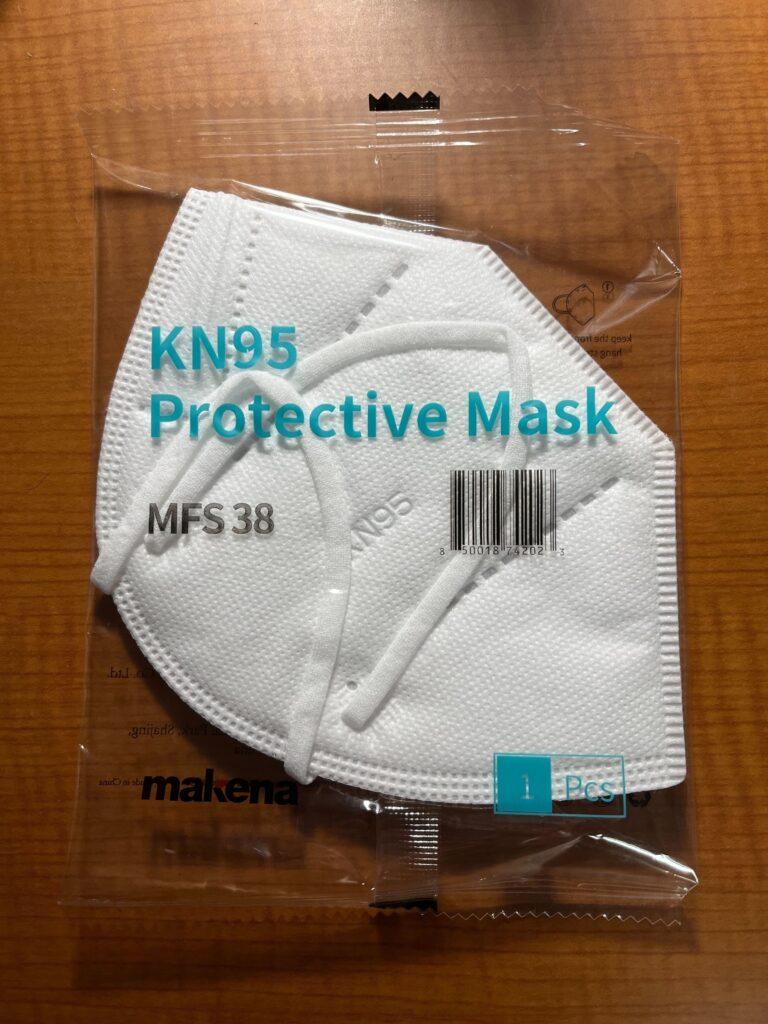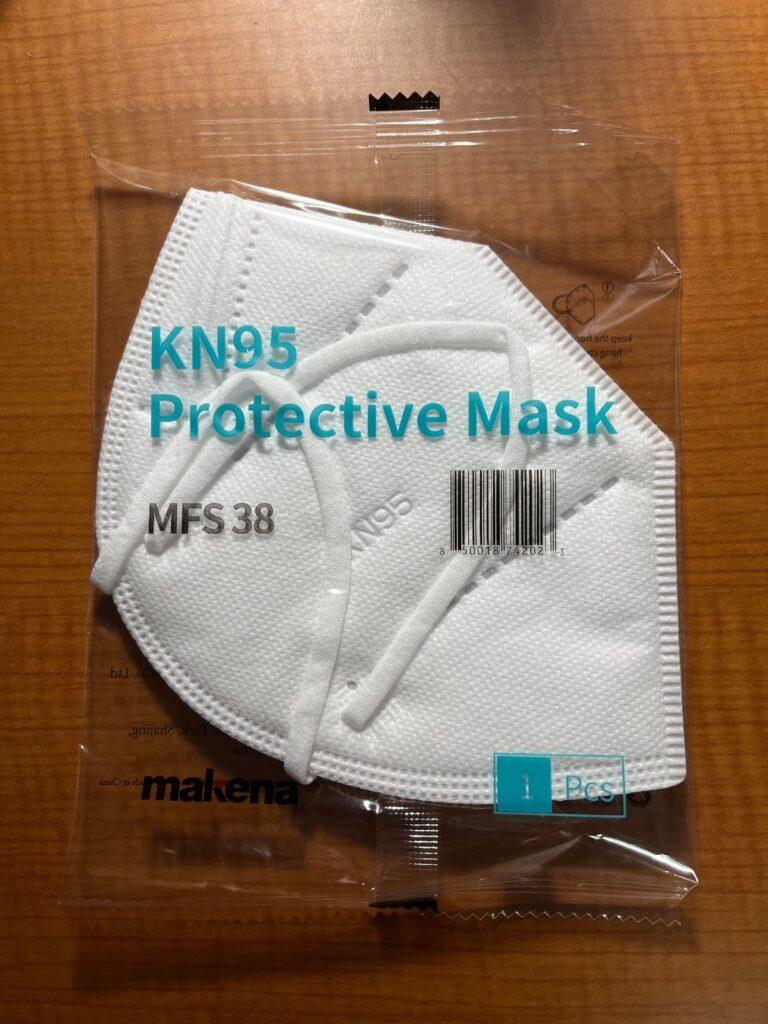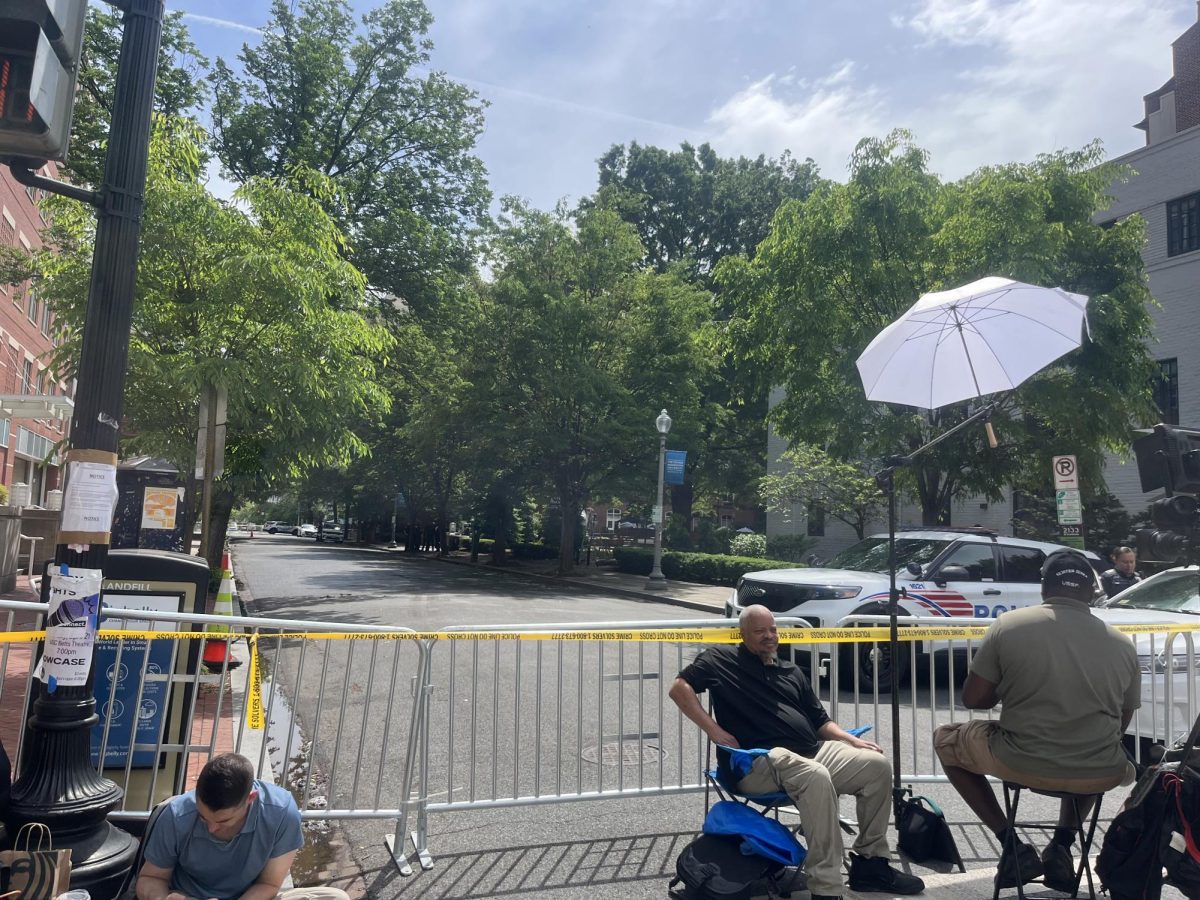UPDATE: According to a Feb. 18 email from a university spokesperson, the recalled Makena Electronic masks were confirmed to be effective. The masks have been placed back into circulation.
“We have received test results performed by independent laboratories confirming that the Makena Electronic KN95s on campus meet the performance requirements under GB2626-2006 and the NIOSH N95 requirement for filter efficiency,” the spokesperson wrote.“The effectiveness of all KN95 and N95 masks provided by the university has been verified by independent testing.”
Georgetown University has recalled select KN95 masks distributed on campus while administrators ascertain whether they meet standards for efficiency and safety.
The university pulled masks made by Makena Electronic, a Chinese company that manufactures digital consumer electronic products, as well as personal protective equipment (PPE).
Last week, The Hoya submitted to the university examples of masks available on campus that did not visibly meet international standards for quality KN95 respirators. In response, a university spokesperson told The Hoya that administrators decided to pull Makena Electronic masks from distribution until additional details about their authenticity had been gathered.
“Upon additional review of our current stock, out of an abundance of caution we have removed Makena Electronic masks from campus distribution,” the spokesperson wrote in a Feb. 17 email to The Hoya. “While the Makena Electronic Masks are certified by the manufacturer to meet the standard for KN95 masks, we are seeking additional confirmation that these masks meet the applicable efficiency standard.”

The Hoya identified several examples of masks in circulation on Georgetown’s campus that did not visibly meet standards laid out by the Centers for Disease Control and Prevention (CDC) for KN95 respirators. According to these standards, KN95 masks should include markings identifying the mask’s manufacturer, model, size and a number and publication standard that usually reads “GB-2626-2019” or “GB-2626-2006.”
The Makena Electronic masks were available at campus PPE distribution stands as recently as this week, including in White-Gravenor Hall.
While masks still in circulation on campus lack the markings that indicate authenticity, the university spokesperson wrote that now all available KN95 respirators have been vetted as authentic.
“Georgetown has confirmation from independent laboratories that all masks currently in circulation meet the applicable efficiency standard,” the spokesperson wrote.
The spokesperson said that masks pulled from circulation have been replaced with some that were either approved by the CDC’s National Institute for Occupational Safety and Health (NIOSH) or tested independently to confirm authenticity.
While guidelines provided by the CDC are useful for spotting potential counterfeit masks, the criteria alone cannot establish whether or not a mask is authentic, according to Dr. Amesh Adalja, an infectious disease expert and professor at Johns Hopkins Bloomberg School of Public Health.
“The CDC criteria is a guide and may or may not be completely sensitive or specific for identifying counterfeit KN95s,” Adalja wrote in an email to The Hoya.
The manufacturer of the recalled masks did seek Food and Drug Administration (FDA) Establishment Registration. However, the registration process in no way certifies FDA approval of a product.
The Makena Electronic masks require additional verification of authenticity, according to Anne Miller, executive director of Project N95, a Buffalo-based nonprofit organization that reviews the quality of masks and PPE for consumers and governments.
“Establishment registration does not mean approval,” Miller wrote to The Hoya. “This product would need to be tested.”
The recall follows this month’s discovery that American University unknowingly distributed counterfeit KN95 masks after an investigation by the school’s student newspaper, The Eagle.
The university spokesperson said Georgetown procures masks from several manufacturers and implements a vetting process to ascertain the respirators’ quality.
“We regularly obtain testing results or other proof of certification or efficiency from the manufacturer and/or independent laboratories to ensure the masks provided to the community meet appropriate standards,” the spokesperson wrote. “Staff members also review the university’s mask stock to ensure quality.”
The CDC found that counterfeit respirators made up about 60% of the KN95 masks they evaluated in 2020 and 2021. Similarly, fake N95 masks are common. These masks, which offer increased protection and filtering capabilities than cloth masks, have become more widely recommended in past months.
Georgetown University updated its mask guidelines for the spring semester to ask community members to wear KN95, N95 or comparable masks while on campus, according to a Jan. 24 email from Provost Robert Groves.
“Given the respiratory nature of COVID-19 transmission, students, faculty and staff should wear a properly-fitted, high-quality mask (e.g., N95, KN95, KF94) while on campus,” Groves wrote in the email to students. “Individuals cannot wear a cloth mask, or a mask with a vent or valve, because these masks do not sufficiently reduce the transmission of the virus from exhaled droplets and aerosol particles that might contain the virus.”
Georgetown is not the only stakeholder having to deal with the question of potentially inauthentic PPE, according to Miller.
“There are a large number of these companies who have pivoted to make PPE and it is sort of a vast unknown as to their performance,” Miller wrote.
This article was updated on Feb. 17 to include additional sources and information.















